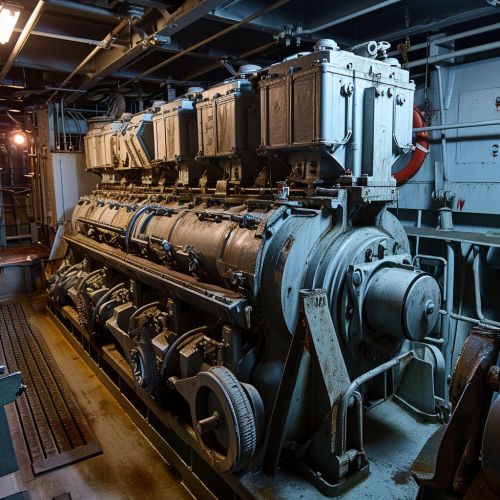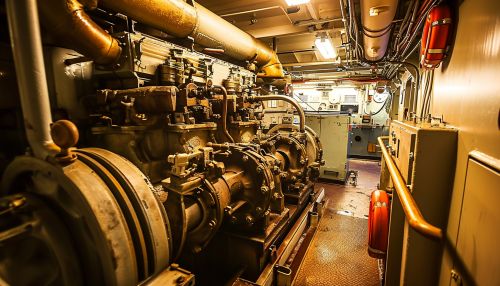Marine Engineering
Introduction
Marine engineering is a specialized field of study that involves the design, development, production, and maintenance of the equipment used at sea and on board sea vessels like boats, ships, etc. Marine engineers focus on the development and production of internal systems of boats, ships, or submarines. It is a branch of engineering that specifically deals with the design and construction of onboard systems and oceanographic technology.


History
Marine engineering as a discipline has its roots in the exploration and trade ambitions of some of the most powerful and wealthy kingdoms of the ancient world. The Egyptians, Phoenicians, Greeks, and Romans all developed increasingly sophisticated naval vessels to expand their territories and secure trade routes. The advent of steam power in the 19th century led to the development of the first modern marine engines. The field has evolved significantly since then, with the introduction of nuclear-powered submarines and aircraft carriers, and the development of highly efficient diesel engines and gas turbines.
Marine Propulsion Systems
Marine propulsion is the mechanism or system used to generate thrust to move a ship or boat across water. The setup of a ship's propulsion system depends on the vessel's mission, which could range from carrying cargo to conducting military missions. The most common types of marine propulsion systems include:
- Internal combustion engines: These are typically diesel engines, which are used in a wide range of vessels from small boats to large cargo ships. They can be either two-stroke or four-stroke engines, depending on the specific application.
- Steam turbines: These were the first type of mechanical propulsion system used in ships. While they are not as common today, they are still used in some larger vessels, particularly in the military.
- Gas turbines: These are used in some high-speed vessels and are often combined with other types of engines in a system known as COGAG (Combined Gas And Gas).
- Nuclear power: This is used in some military vessels, particularly submarines and aircraft carriers, where the long periods at sea and high power requirements make nuclear power a practical choice.
Marine Electrical Systems
Marine electrical systems are a critical part of any ship's design. They provide power for everything from the ship's propulsion system to its lighting and communication systems. Marine electrical systems typically include generators, batteries, inverters, and a complex system of wiring. These systems must be designed to withstand the harsh marine environment and be able to operate reliably for extended periods at sea.
Naval architecture is another crucial aspect of marine engineering. It involves the design and construction of the ship's hull, its stability characteristics, and its seaworthiness. Naval architects work closely with marine engineers to ensure that the ship's structure is sound and that it can safely accommodate all of the onboard systems and equipment.


Oceanographic Engineering
Oceanographic engineering is a sub-discipline of marine engineering that focuses on the design and development of equipment used to study the ocean. This can include everything from submersible vehicles to instruments used to measure ocean currents, temperature, and salinity. Oceanographic engineers often work closely with oceanographers and other scientists to develop equipment that can withstand the harsh conditions found in the deep ocean.
Marine Renewable Energy
Marine renewable energy is a growing field within marine engineering. It involves the design and development of systems to harness energy from the ocean, such as tidal power, wave power, and offshore wind power. These systems must be designed to withstand the harsh marine environment and to operate efficiently and reliably.
Education and Career
A career in marine engineering requires a strong background in mathematics and physics, as well as a thorough understanding of engineering principles. Most marine engineers have a bachelor's degree in marine engineering, naval architecture, or a related field. Some may also have a master's degree or Ph.D. in a specialized area of marine engineering.
Marine engineers work in a variety of settings, including shipyards, naval bases, and in the offices of shipbuilders and marine equipment manufacturers. They may also work on board ships, overseeing the operation and maintenance of shipboard systems.
